Main menu
News
Home » News
Other news sites
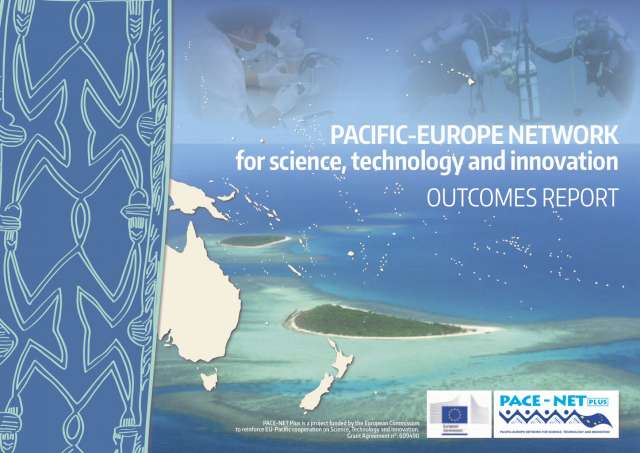
Friday, 23 December 2016
The opportunities for European and Pacific researchers to collaborate are many and diverse. The European Union (EU) policies and scientific strategies aim at reinforcing these collaboration opportunities, notably through Horizon 2020, the European framework programme dedicated to research and innovation. Strengthening the Europe-Pacific bi-regional dialogue in science, technology and innovation (ST&I) is a key step in achieving increased...
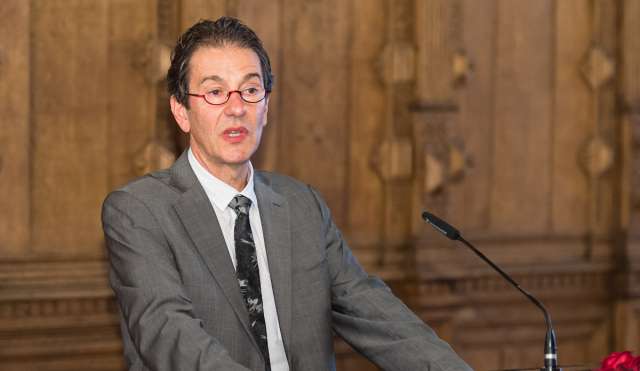
Tuesday, 22 November 2016
The Pacific region can serve as an exemplar of how science diplomacy could work, according to Professor Jean-François Marini, coordinator of the EU-funded PACE-Net Plus project and former adviser to the French government on science diplomacy.
PACE-Net Plus united 16 partners in the Pacific and the EU to strengthen research cooperation between the two regions. How did you go about achieving this?
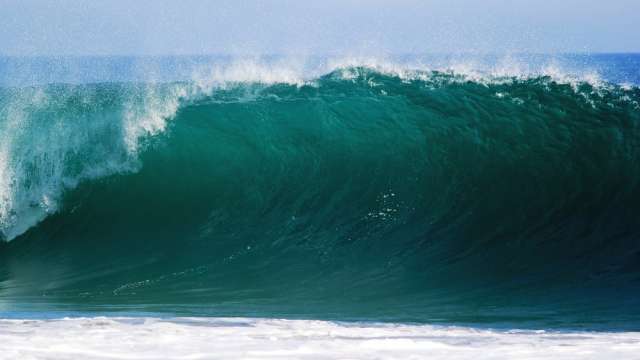
Tuesday, 11 October 2016
The damage that tsunamis could cause is expected to rise due to climate change, say researchers who are developing a tsunami early warning system for Europe and investigating the best way to reduce their impact on people and buildings.
Tsunamis are a series of waves mainly caused by undersea earthquakes which can leave huge death tolls and destruction in their wake, and can only be predicted after the occurrence of the earthquake. They claimed...
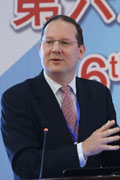
Tuesday, 20 September 2016
The European Union’s (E.U) Horizon 2020, the biggest EU Research and Innovation programme ever with nearly €80 billion of funding available over 7 years (2014 to 2020) was discussed at the National University of Samoa (NUS) on Monday.
Dr Rado Faletic, Director, Project & Communication, of Montroix Pty Ltd said that Horizon 2020 was a means to drive economic growth and create jobs, and has the political backing of Europe’s leaders and the...
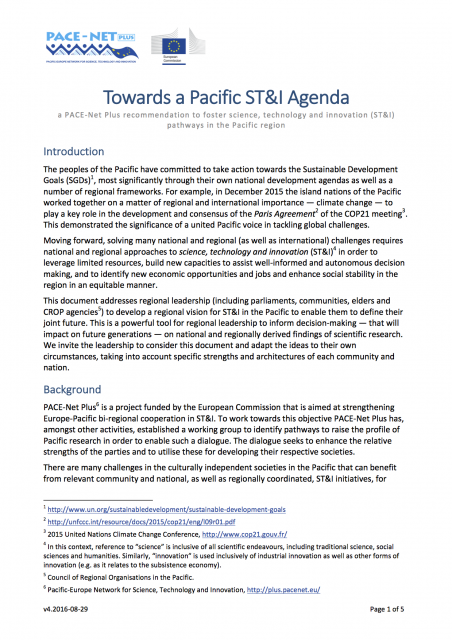
Monday, 29 August 2016
This document addresses regional leadership (including parliaments, communities, elders and CROP agencies) to develop a regional vision for ST&I in the Pacific to enable them to define their joint future. This is a powerful tool for regional leadership to inform decision-making — that will impact on future generations — on national and regionally derived findings of scientific research. We invite the leadership to consider this document and...
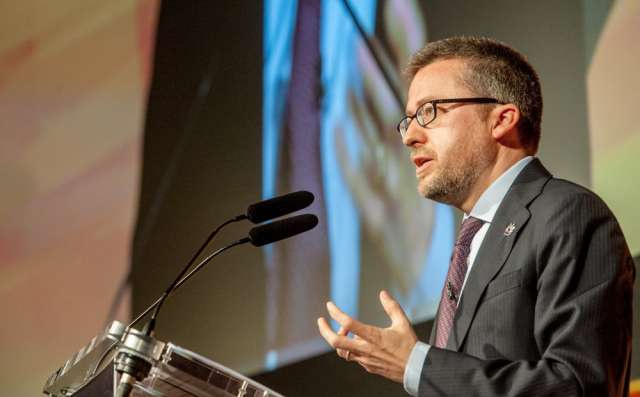
Thursday, 28 July 2016
Enhancing trust in science through public engagement and open, transparent research is vital if we are to avoid descending into a 'post-factual society', according to Carlos Moedas, the European Commissioner for Research, Innovation and Science.
Commissioner Moedas told an audience of researchers and policymakers at the EuroScience Open Forum (ESOF) conference in Manchester, UK, that people feel left behind by politics and science, and this is...
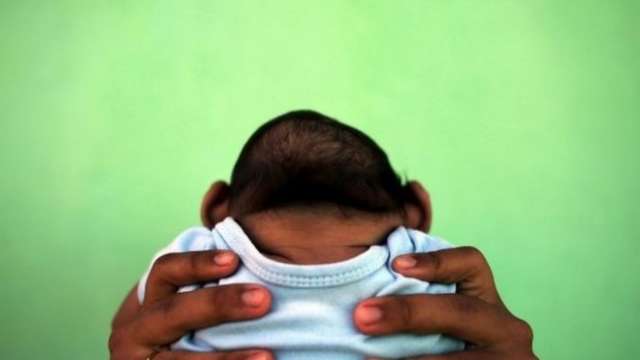
Tuesday, 26 July 2016
A woman in Spain infected with the Zika virus has given birth to a baby with the brain disease microcephaly, thought to be the first such birth in Europe.
Authorities revealed in May they had detected microcephaly in the foetus but the couple decided to keep the baby.
Felix Castillo, the neonatal chief at Barcelona's Vall d'Hebron hospital, said that the child's vital signs were "normal and stable".
The baby was born by caesarean section...
Tuesday, 12 July 2016
Within the context of small fragile economies, vast oceans and extreme vulnerability, the Pacific-Europe Network for Science, Technology and Innovation (PACE-Net Plus) bi-regional dialogue platform recognises that regional cooperation amongst Small Island States of the Pacific is the only way forward to a sustainable future.
These were the comments by the Deputy Prime Minister of Tonga, Honourable Siaosi Sovaleni, who officiated as the Chief...
Thursday, 30 June 2016
Within the context of small fragile economies, vast oceans and extreme vulnerability, the Pacific-Europe Network for Science, Technology and Innovation (PACE-Net Plus) bi-regional dialogue platform recognises that regional cooperation amongst Small Island States of the Pacific is the only way forward to a sustainable future.
These were the comments by the Deputy Prime Minister of Tonga, Honourable Siaosi Sovaleni, who officiated as the Chief...
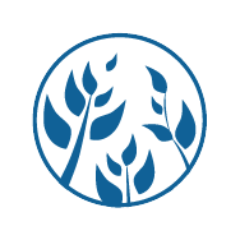
Tuesday, 21 June 2016
Applications are sought from young, independent scholars who combine the highest level of research excellence with a demonstrated passion for delivering impact. Founded in 2010, the Global Young Academy is an international organization of young researchers with members from six continents. Members are selected for five year terms.
Tuesday, 10 May 2016
The South Centre has announced the publication of Policy Brief No. 25 entitled “The Right to Development, Small Island Developing States and the SAMOA Pathway” by Manuel F. Montes, the Senior Advisor on Finance and Development of the South Centre.
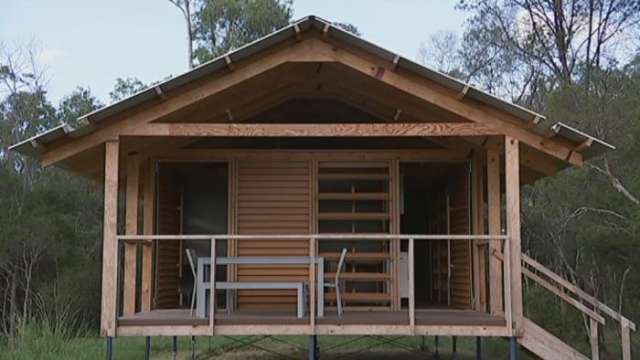
Wednesday, 20 April 2016
For decades, Australian surfboard shaper Nev Hyman shaped boards for world champions, but now he is shaping something quite different: affordable, cyclone-proof housing.
After launching three surfboard brands — the first in 1973 — Mr Hyman initially invested in plastics recycling.
“Being in Bali in the late 70s and early 80s and seeing how fantastic [Bali] was, and then going back there and seeing more and more rubbish in the oceans … I ended...
Wednesday, 6 April 2016
The biotechnologist whose chip tablets send data from within the body; the therapist training psychosocial support workers in crisis regions via the Internet; the paediatrician whose smartphone app is prescribed as a form of therapy – thousands of inquisitive minds are turning the health system on its head byte by byte.
Alpbach 2016 are looking for pioneers and projects that show the new possibilities inherent in digital ideas while not losing...
Thursday, 31 March 2016
With this bi-regional dialogue platform, PACE-Net Plus will present a strategy to support the official recognition of the fundamental importance of STI in the sustainable development of Pacific Island Countries; PACE-Net Plus will also propose concrete joint activities to strengthen the STI cooperation between EU and the Pacific Region, thus contributing to policy dialogue between the two regions.
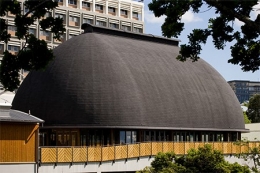
Tuesday, 22 March 2016
Foreign Minister Murray McCully has welcomed the launch of a New Zealand based Pacific think-tank aimed at supporting sustainable development in the region.
“We have identified the need for more targeted research on the Pacific, to underpin development initiatives and support Pacific decision makers,” Mr McCully says.
“The New Zealand Institute for Pacific Research (NZIPR) will work in support of Pacific governments and regional agencies, and...
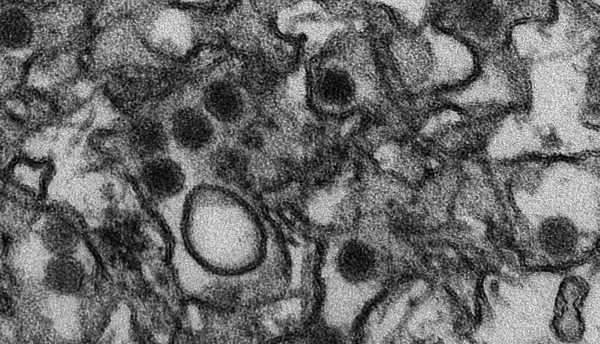
Tuesday, 15 March 2016
The EU has announced that it will release EUR 10 million to fund research looking at the link between the mosquito-borne Zika virus, which is sweeping South America, and severe brain malformations seen in newborn babies, known as microcephaly.
The Zika virus spread from Polynesia to Brazil during 2014, and in January 2016 the World Health Organization (WHO) said it expected the virus would spread to most countries in the Americas.
The vast...
Thursday, 3 March 2016
With a rapidly growing population, the Pacific nation of Kiribati will need to forge stronger links between agriculture and nutrition if it is to feed its people in the face of devastating impacts from climate change. Nutritionist and public health manager Eretii Timeon is in the frontline of efforts to assure better diets for a population that is currently suffering a dangerous mix of child malnutrition and adult obesity.
CTA has prioritised...
Monday, 22 February 2016
Trade openness can protect developing countries against economic shocks, researchers believe.
An analysis of the effects of trade diversification or specialisation on national economies found that in the last decades of the 20th century, countries that increased trade with China and India saw reduced volatility in their economies, a finding that researchers say could feed into to an open trade policy for today's developing countries.
Although...
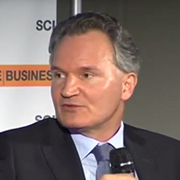
Thursday, 18 February 2016
European Commission is to launch a public consultation on the successor to Horizon 2020 in the second half of 2016. This will be the EU’s ninth R&D programme
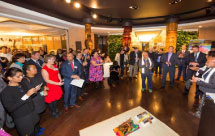
Monday, 21 December 2015
On the occasion of the UNFCCC COP21, when world leaders were debating and deciding on a path to reducing carbon emissions and other greenhouse gasses (GHG), the Overseas Countries and Territories Association (OCTA) with the support of the European Union co-chaired a well-attended island event with the Global Island Partnership (GLISPA) on 8 December 2015 at the Maison de la Nouvelle Calédonie in Paris. The high level event showcased the array of...
Thursday, 19 November 2015
A ground-breaking study has caused a dramatic rethink of the process by which predators control ecosystems, and it’s turning classic ecology on its head.
In the gleaming salt marshes of Georgia’s Sapelo Island, US, Dr John Griffin was unleashing terror. An ecologist, he had emptied an army of mud crabs into the sediment to see what would happen to their prey.
Dr Griffin, a lecturer at Swansea University in the UK, had his eye on the little...
Tuesday, 17 November 2015
By pulling metals out of mine wastewater and automating operations underground, researchers are helping minimise the environmental impact of mining.
Almost everything we use in our daily lives – clothes, paper, computers, phones, cars and even houses – would not be there without materials extracted from the earth.
One day, humans might be able to get nearly everything they need through recycling alone. Until then, however, mining will be...

Tuesday, 10 November 2015
Most countries, regardless of their level of income, now see research and innovation as key to fostering sustainable economic growth and furthering their development. This is one of the conclusions of the UNESCO Science Report: towards 2030.
“In the wake of the adoption of the Sustainable Development Goals to 2030 by the United Nations General Assembly, the UNESCO Science Report clearly shows that research is both a motor for economic...
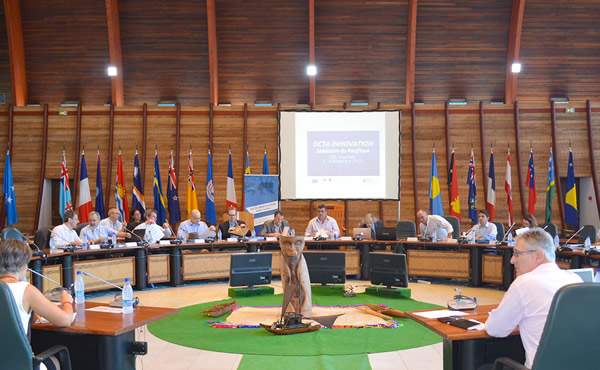
Tuesday, 10 November 2015
The Pacific Regional Seminar or Innovation was developed as a part of the “Territorial Strategies for Innovation” (TSI) project, which enhances sustainable development through innovative solutions for economic diversification and improves regional and global competitiveness of the Overseas Countries and Territories (OCTs) of the European Union.
Funded by the 10th European Fund for Development (EDF) and driven by the OCTA (Overseas Countries and...
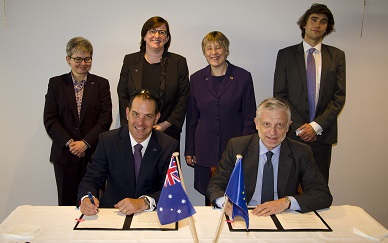
Friday, 6 November 2015
Access to vital satellite data for Australia, South East Asia and the South Pacific has been guaranteed through the signing of a cooperation arrangement in Brussels on Wednesday, 4 November 2015. The arrangement was signed between the European Commission, represented by Philippe Brunet, Director of Space Policy, Copernicus and Defence and the Australian Government, represented by Stuart Minchin of Geoscience Australia. It enhances access to...
Friday, 6 November 2015
The NZ and Pacific Island Chapter Committee of the Australasian Research Management Society (ARMS) is now calling for expressions of interest to join the Chapter Committee.
The Chapter Committee offers a chance to engage with like-minded professionals from other parts of the research management sector, build networks and to help the Chapter host occasional events to build skills and engagement within the region.
Friday, 30 October 2015
The United Nations has recognised the CRC for Spatial Information’s Mapping Exposure to Sea Level Rise in the Pacific Islands Project as a leading initiative dealing with climate change.
This collaborative Project with NGIS Australia and the Department of Foreign Affairs and Trade allows the Pacific Islands – Tonga, Samoa, Vanuatu and Papua New Guinea – to prepare for and adapt to sea level rise brought about by climate change.
In response to...
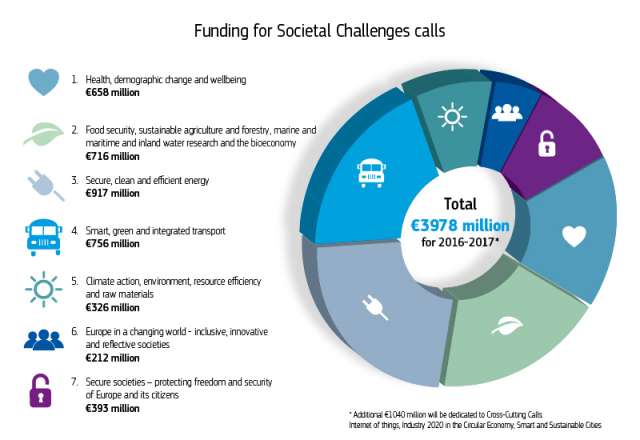
Wednesday, 14 October 2015
The EU has announced a renewed focus on creating jobs, growth and investment as it revealed €16 billion to fund research in 2016 and 2017.
“The point is not the €16 billion, but its impact on our lives,” Carlos Moedas, European Commissioner for Research, Science and Innovation, told a press briefing on 13 October.
It is the second work programme announced under the €77 billion Horizon 2020 programme, the EU’s biggest-ever research fund....
Tuesday, 6 October 2015
A group of old antibiotics could be the answer to drug-resistant tuberculosis (TB) and trials have already been completed.
Every hour, around five people in Europe die from TB, and about a third of the world’s population is infected with Mycobacterium tuberculosis, the bacteria behind TB, according to the World Health Organization (WHO).
Most infected people manage to keep the disease in check. However, rising drug resistance and poverty means...
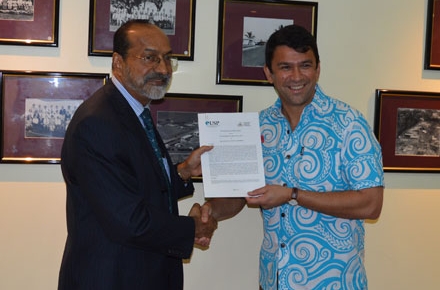
Monday, 14 September 2015
A Memorandum of Understanding (MoU) was signed between ANU and the University of the South Pacific (USP) on 24 August 2015.
The MoU was concluded during an ANU delegation visit to the Suva campus of USP in Fiji. The ANU delegation was led by Professor Michael Wesley, Director of the Coral Bell School of Asia Pacific Affairs. The delegation met with USP’s Vice-Chancellor and President, Professor Rajesh Chandra, and members of the University’s...
Monday, 24 August 2015
The PACE-Net Plus consortium is pleased to publish the outcomes of its seed-funding scheme, which closed for applications on the 15th of April 2015.
Of 65 expressions of interest received, 47 were eligible to apply for this funding, and a total of 21 proposals have been successfully evaluated by external evaluators and consortium members in the following broad areas:
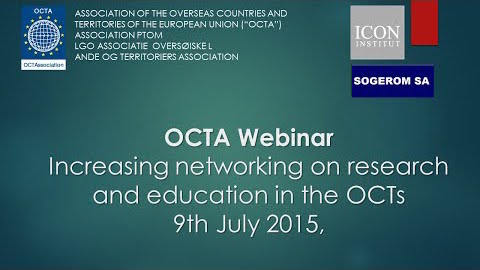
Wednesday, 5 August 2015
The Overseas Countries and Territories Association (OCTA) recently held their first webinar for their research and education network.
Participants had fruitful exchanges, practical answers to questions and know how on bids, plus other Higher Education experiences at the regional level were discussed. OCTA hopes to expand the discussions through the forum facility on OCTA’s Knowledge Centre in the coming weeks. Especially for the colleagues...
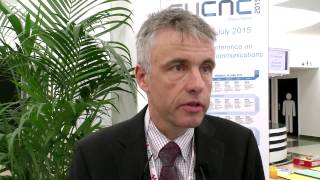
Wednesday, 8 July 2015
Science Officer Dr Ralph Stübner on why researchers should join COST Actions and how events like EuCNC help networks and ideas grow.
Tuesday, 7 July 2015
A visit to the European Parliament concluded the bi-regional dialogue platform organised by PACE-Net Plus, held on 23-24 June 2015 in the heart of the European quarter of Brussels. The platform gathered some 80 delegates from Europe and the South Pacific, all senior scientists or decision-makers involved in Research in Science, Technology and Innovation.
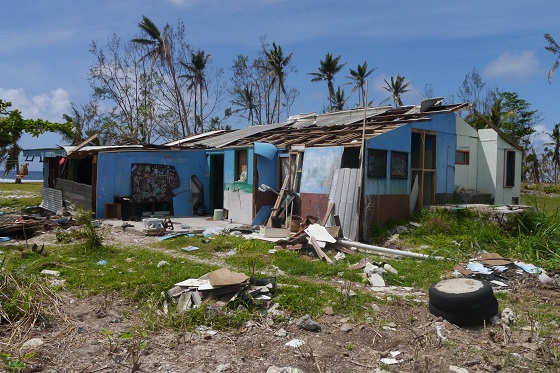
Tuesday, 9 June 2015
A major regional geospatial information system and other innovative risk assessment tools are being developed to assist Pacific Island countries to undertake evidence-based decision making in development planning and finance.
A four-day workshop, running from 9 to 12 June 2015, with representatives from Pacific region governments and development partners, focusing on the disaster risk modelling and assessment tools.
The tools, including a...
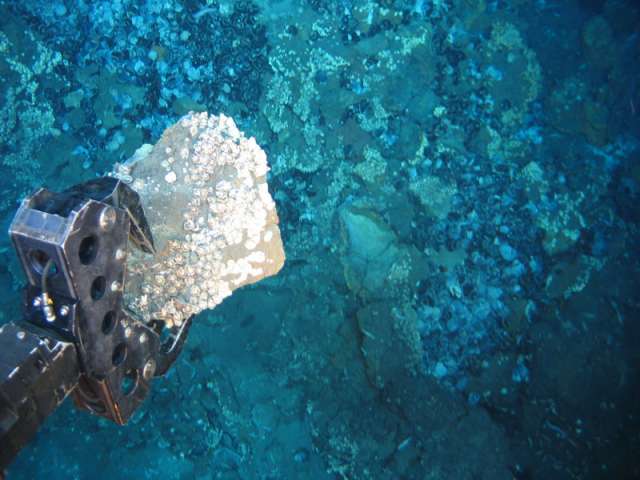
Wednesday, 27 May 2015
The Secretariat of the Pacific Community (SPC) and the European Union will establish a community of practice for Pacific Islands' policy officers and legislative drafters involved in deep sea minerals.
The new initiative is a key outcome of an intensive regional training workshop on deep sea minerals policy formulation and legislative drafting hosted by the Government of Samoa and organised with SPC in Apia last week.
The virtual community of...
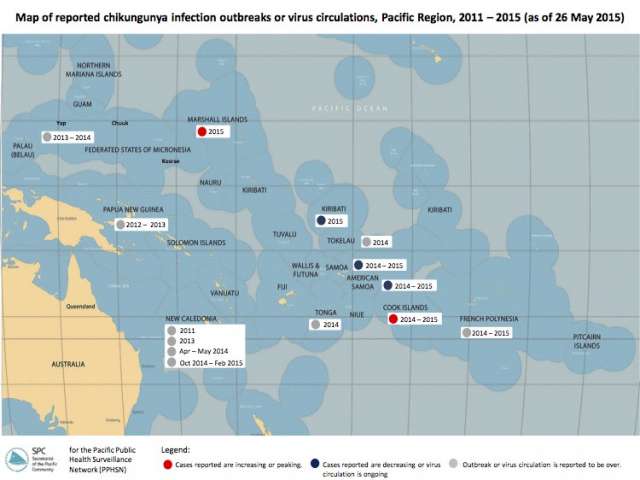
Tuesday, 26 May 2015
The chikungunya virus has now reached half of the Pacific Island countries and territories and is likely to continue spreading to non-affected countries in the region and other parts of the world.
Surveillance experts at the Secretariat of the Pacific Community (SPC) closely monitor this emerging disease in collaboration with countries, territories and regional partners of the Pacific Public Health Surveillance Network.
Since 2011, when the...
Tuesday, 26 May 2015
Extreme weather and a changing climate are presenting new threats to the safety of our fish, seafood and vegetables, according to European scientists who are working out how to keep our food safe to eat.
Fish and vegetables form an important part of a healthy diet but only if they are safe to eat when they reach your dinner plate. Food-borne and diarrhoeal disease kills two million people per year, including children.
Professor Mieke...
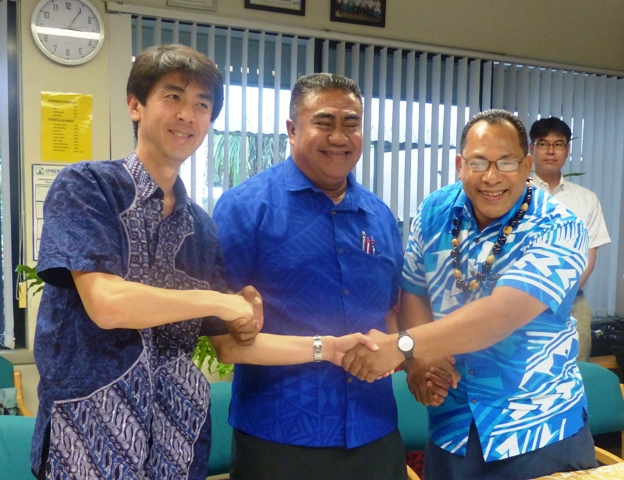
Friday, 22 May 2015
The Governments of Samoa and Japan have united yet again in another historical landmark agreement that will help benefit Pacific island communities through the Secretariat of the Pacific Regional Environment Programme (SPREP).
The agreement was signed in Samoa by Mr. Yutaka Fukase of Japan International Cooperation Agency, Mr. Lavea Tupa’imatuna Iulai Lavea, CEO of Ministry of Finance, and Mr. Kosi Latu, Acting Director General of Secretariat...
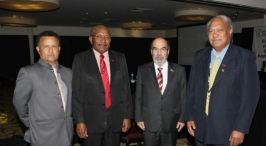
Wednesday, 13 May 2015
The Eleventh Meeting of Southwest Pacific Ministers of Agriculture under the theme “Climate Smart Agriculture” began today with Papua New Guinea Deputy Prime Minister Leo Dion and FAO Director-General José Graziano da Silva highlighting some of the pressing issues affecting the countries in the region.
“I believe that the theme Climate Smart Agriculture is timely in view of the fact that the Pacific region is highly vulnerable to adverse...
Monday, 13 April 2015
With the aim to promote the implementation of joint activities, support innovation, and strengthen Pacific-EU research cooperation and partnerships, PACE-Net Plus is offering seed funding to support initiatives intending to enhance collaboration and innovation.
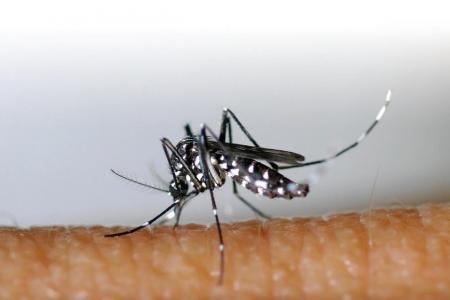
Tuesday, 7 April 2015
Les Belges doivent-ils craindre les piqûres des redoutables moustiques tigres ? La situation est actuellement sous contrôle, mais les scientifiques sont formels : rien ne pourra empêcher ces moustiques porteurs de maladies contagieuses graves de s’établir dans notre pays.
Le moustique tigre, c’est le nom « vulgaire » de l’Aedes albopictus, une bien belle… saloperie, vecteur de maladies aussi peu sympathiques que la dengue, le chikungunya, etc...
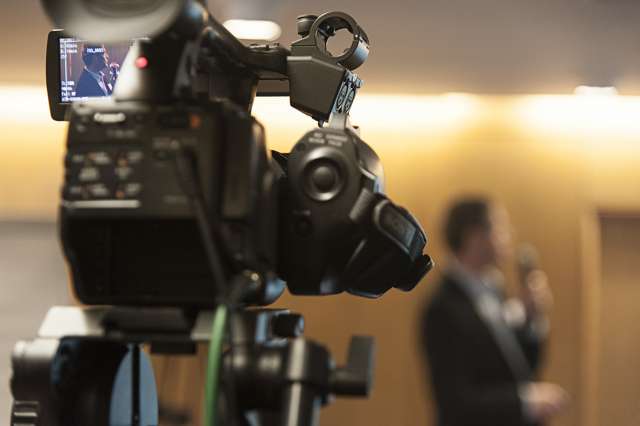
Friday, 27 March 2015
The ASEAN-EU Science, Technology and Innovation Days 2015 took place in Paris, France March 17-19 under the overarching theme: “Excellent science in ASEAN.” The second edition of this forum-like event attracted a wide range of stakeholders engaged in international science cooperation, scientific research or innovation.
The event was attended by almost 300 participants, which exceeded the expectations of the event organisers. Many countries were...
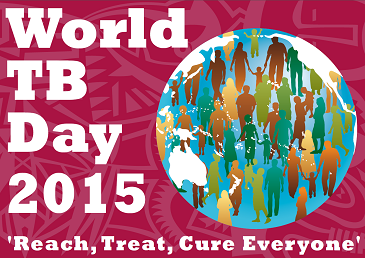
Tuesday, 24 March 2015
World Tuberculosis Day reminds us all of the important work under way to eradicate this highly infectious and sometimes fatal disease, but also that more needs to be done to save lives across the Pacific and globally.
“We’ve achieved significant progress in the detection and treatment of tuberculosis cases in the Pacific region in recent years, but a renewed effort is essential to ‘reach, treat and cure everyone’,” according to a Tuberculosis...
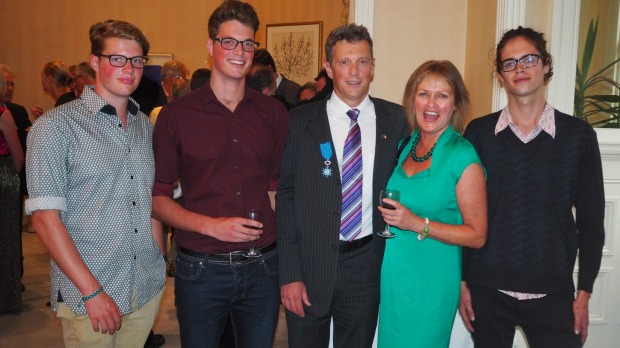
Tuesday, 17 March 2015
A Wellington man has been made a knight of France’s National Order of Merit, but says he feels embarrassed about getting an award for doing something he loves.
Geoffroy Lamarche, a French marine geophysicist who lives in Hataitai, was given the award of Chevalier de l’Ordre National du Merite for his “inestimable contribution to the bilateral relations between France and New Zealand”.
Ambassador Laurent Contini said Lamarche, a principal...
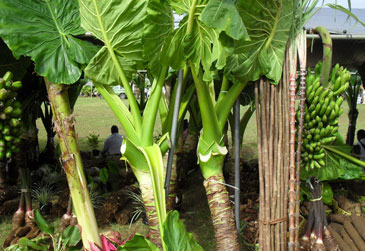
Monday, 16 March 2015
Tonga and Papua New Guinea have signed a key international treaty that promotes sustainable global food security.
The International Treaty on Plant Genetic Resources for Food and Agriculture is vital in ensuring continued availability of plant genetic resources that countries rely on to feed their people, allowing future generations to access the genetic diversity that is essential for food and agriculture.
Tonga will become the 134th...
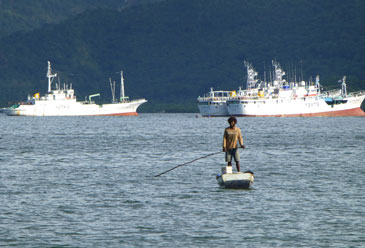
Tuesday, 3 March 2015
The future management of one of the world’s most significant fisheries which spans more than 30 million square kilometres of the Pacific Ocean will be under review at back-to-back forums over the next week at the headquarters of the Secretariat of the Pacific Community (SPC) in Noumea, New Caledonia.
Marine scientists, natural resource managers, researchers, community fishers and non-governmental organisations from 24 countries and territories...
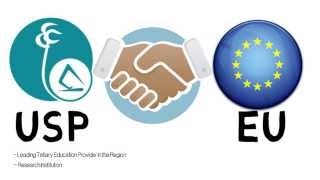
Wednesday, 18 February 2015
USP and the Delegation of the European Union for the Pacific launched a series of initiatives to create awareness on their partnership and its benefits to the Pacific region. This was in line with the recent launching of the European Year for Development (EYD 2015) by the European Union, with the theme Our World, Our Dignity, Our Future.
The EYD 2015 theme for February is Education and the USP held a number of activities and events to promote...
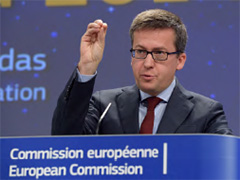
Monday, 16 February 2015
In this issue:
The Commissioner visits CERN
ERC’s President travels to South Africa
EU meets US at the Transportation Research Board
Trilateral EU/US/Canada workshop on Arctic Research
Arab Forum for Scientific Research and Sustainable Development
and much more…
Wednesday, 4 February 2015
PACE-Net Plus and the GOPS will jointly organize, in association with PACE-SD, a scientific workshop on: “Strengthening the Observation systems of Climate change and its impacts in the Pacific, for a sustainable management of resources and adaptation”.
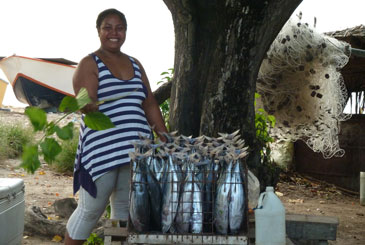
Monday, 2 February 2015
In the ongoing battle against obesity, heart disease and diabetes in the Pacific region, a new study reveals that allocating sufficient tuna for local consumption and keeping it affordable could significantly improve health outcomes.
Pacific Island communities have the highest rates of obesity and diabetes in the world, primarily because traditional foods such as root crops, fish and shellfish are being replaced by relatively cheap, energy-...
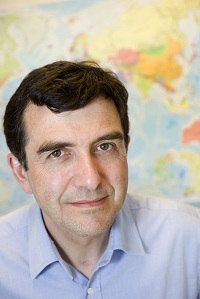
Tuesday, 13 January 2015
Surveiller les maladies, mener les enquêtes en population pour identifier leurs causes (comportements, expositions environnementales, facteurs génétiques) : c’est le rôle de l’épidémiologie dont ce cours vous enseigne les principes et méthodes.
Ce cours débute par une présentation des grands principes de l’épidémiologie descriptive (surveillance des maladies, investigation d’épidémies) et de l’épidémiologie analytique (identification des...
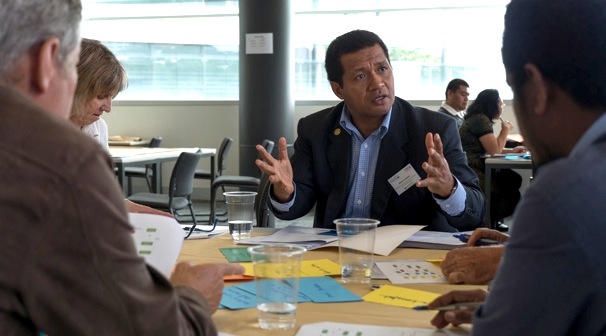
Monday, 22 December 2014
The Pacific region represents an area of strategic importance for European Union and is of critical importance for global sustainability. Rich in natural resources, including both terrestrial and deep marine mineral resources, it is also an area with strong cultural heritage, countless languages and a wide diversity of traditional ways of life and live customs.
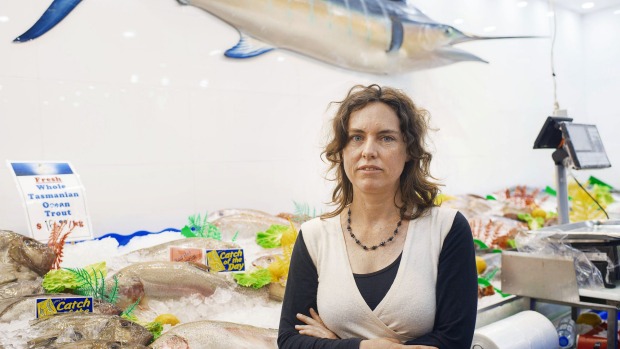
Monday, 22 December 2014
Known as ciguatera fish poisoning, the illness has been mostly tropical. Early Pacific explorers described it as far back as 1606 and even in 1776, during the second voyage of James Cook. More than 1500 cases have been documented in Australia since 1965 and the number appears to be rising.
Friday, 19 December 2014
“The Pacific-Europe Network for Science, Technology and Innovation (PACE-NET Plus1) held its first bi-regional policy dialogue platform in Auckland (NZ), on the 10th and 11th of December 2014. The main goal of PACE-Net Plus is to strengthen cooperation in science, technology and innovation (STI) and to support the bi-regional policy dialogue and networking between the European Union (EU) and the Pacific countries and territories, and within the...
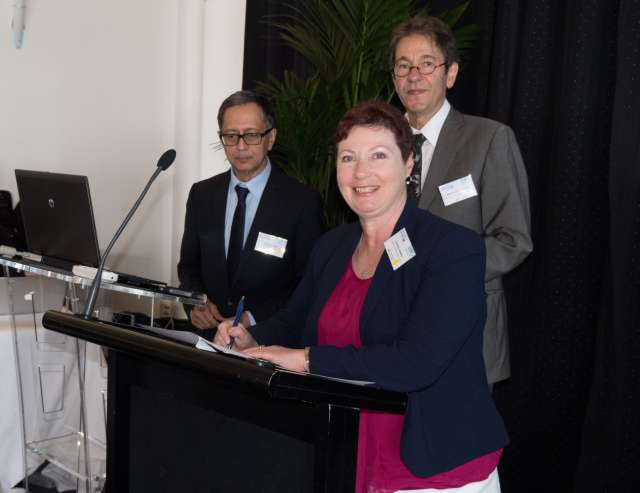
Wednesday, 10 December 2014
The Regional Universities Network (RUN) today signed an MOU with the Pacific-Europe Network for Science, Technology and Innovation (PACE-Net plus) in Auckland, New Zealand, to explore opportunities for collaboration.
The Executive Director of RUN, Dr Caroline Perkins, said the MOU provided a basis for cooperation in areas of mutual research interest such as environmental science, food security and agriculture.
“PACE-NET plus has identified...
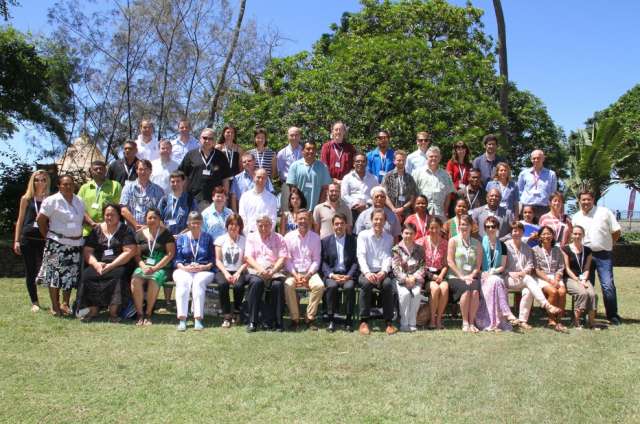
Friday, 21 November 2014
In the Pacific, epidemics and food poisoning caused by fish consumption are widespread and can lead to severe illness and death. Their effects jeopardise food security and local economies. Population growth and climate change are likely to make these events more common. There is therefore an urgent need to conduct relevant research and find new ways of restricting these occurrences.
To help produce proposals in this regard, from 18 to 20...
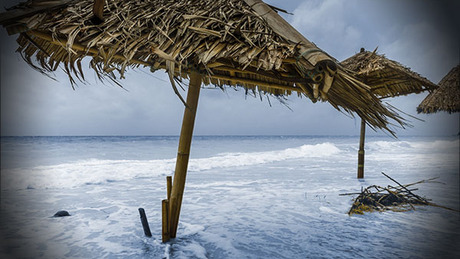
Friday, 21 November 2014
Climate change has already taken place, and it will continue to do for the foreseeable future. These changes present important challenges, but also opportunities, for humanity.
The focus of this course will be on adaptation. In other words, we will look at how each country must assess their specific vulnerabilities to climate change, and the tools at their disposal for protecting the well-being, economy, and environment of its citizens.
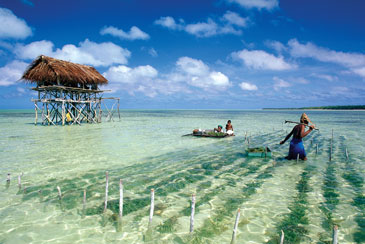
Sunday, 16 November 2014
When they meet tomorrow in New Caledonia, Pacific Island leaders will look to the President of the Republic of France, H.E. François Hollande, to take their compelling case for action on climate change all the way to the United Nations conference in Paris in 12 months’ time.
France will host the 21st session of the Conference of the Parties to the UN Framework Convention on Climate Change in Paris in late 2015, where a new, universal climate...
Friday, 14 November 2014
Pacific Island leaders will gather in Noumea, New Caledonia, on Monday (17 November 2014) to discuss critical issues linked to climate change with the visiting President of the Republic of France, François Hollande.
Initiated by the Secretariat of the Pacific Community (SPC), the High-Level Dialogue on Climate Change will give Pacific leaders a platform to progress the agenda on the serious climate change challenge for the region and its real...
Sunday, 9 November 2014
Representatives of 22 Pacific Island countries and territories have supported an agenda for change designed to position the Secretariat of the Pacific Community (SPC) for the future and enhance the organisation’s impact on people’s lives.
Also among the outcomes of the 44th Meeting of the Committee of Representatives of Governments and Administrations (CRGA 44), members agreed that further debate on regional architecture and harmonising the...
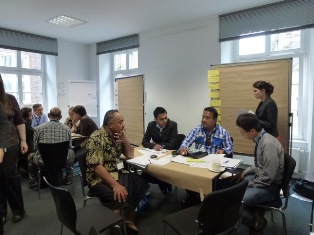
Friday, 31 October 2014
The PACE-Net Plus Conference took place in Bremen from 9th–11th September 2014. Selected participants from Europe and the Pacific identified priority areas for future joint research cooperation between both regions to address the global challenges, and identify funding options and potential participating institutions. These areas were discussed in three Think-Tanks, which combined interactive sessions (world café process, interactive...
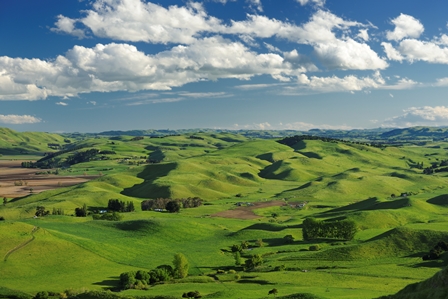
Wednesday, 15 October 2014
Arresting the widespread decline in soil quality is the goal of a new regional soil partnership formed by 17 Pacific countries.
The New Zealand launch of the Pacific Soil Partnership, part of the United Nation’s Food and Agriculture Organization (FAO) Global Soils Partnership (GSP), was held at Te Papa today.
“Soil is essential to life on earth, and it’s particularly important to New Zealand given our land-based industries account for about 17...
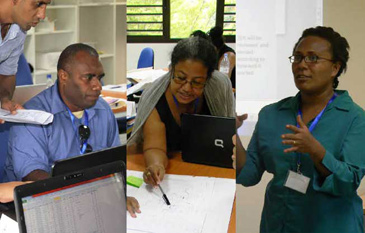
Thursday, 2 October 2014
Public health surveillance and laboratory professionals from American Samoa, Cook Islands, Nauru, Niue, Tuvalu and Vanuatu came together in Noumea, New Caledonia, last week to participate in the first module of an accredited data for decision-making (DDM) training programme.
The DDM training, which is delivered by experts from the Secretariat of the Pacific Community (SPC) together with experts from several partners of the Pacific Public Health...
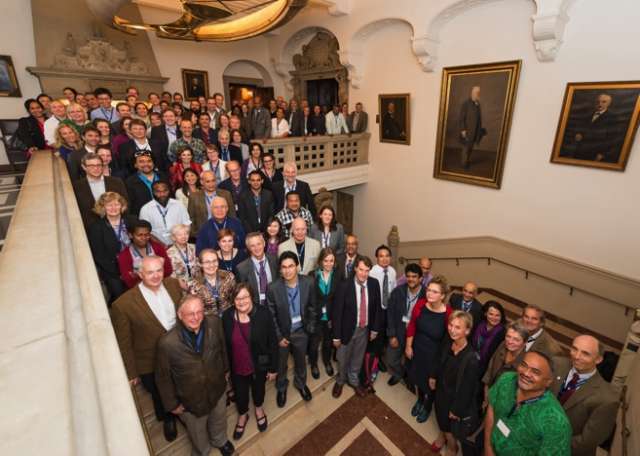
Tuesday, 30 September 2014
Tackling non-communicable diseases or lifestyle options for improved nutrition and well-being; exploring the convergence of science and traditional knowledge in aqua and agriculture for a sustainable and healthy living in the 21st century; and enhancing community resilience in managing environment, water and wastes under a changing climate. These were the main issues addressed through three Think Tanks at the Conference that was held in the...
Wednesday, 24 September 2014
Universities Australia today announced the formation of a major science and research exchange agreement between Australian universities and those in one of the most research-intensive industrial countries in the world — Germany.
The signing of a letter of intent between the German Academic Exchange Service (DAAD) and Universities Australia in Canberra starts a process that will see the development of a Memorandum of Understanding cementing a...
Friday, 12 September 2014
Subject to signature and conclusion of an Agreement associating Switzerland to parts of Horizon 2020, Switzerland will participate from 15 September 2014 with an Associated Country status in actions under:
Thursday, 11 September 2014
New Zealand’s Science and Innovation Minister Steven Joyce today announced that NZD 139 million over six years will be invested in new science research programmes.
The 48 research programmes receiving funding in the Ministry of Business, Innovation and Employment’s (MBIE) 2014 science investment round are in the biological industries, high-value manufacturing and services, energy and minerals, environmental, and health and society sectors.
“...
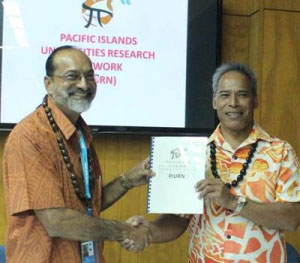
Monday, 8 September 2014
A Memorandum of Cooperation (MoC) was signed in Apia, Samoa for the Technical Centre for Agricultural and Rural Cooperation (CTA) and the Pacific Islands Universities Research Network (PIURN) on 29 August, 2014.
Present at the launch were Professor Rajesh Chandra, USP’s Vice Chancellor & President, Professor John Bythell, USP’s Deputy Vice-Chancellor Research and International, Professor Leapai So’o, National University Samoa (NUS) Vice-...
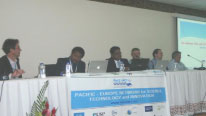
Saturday, 6 September 2014
With the PACE-Net Plus project (http://plus.pacenet.eu/) the European Union (EU), which maintains a long standing relationship with the Pacific, aims to reinforce ST&I cooperation with this region and promote the development of mutually beneficial partnerships, notably through Horizon 2020, the EU framework programme for multi- lateral research and innovation (and the largest research funding programme in the world).
Sunday, 31 August 2014
As part of the preparations for the Third International Conference on Small Island Developing States (SIDS), a pre-conference forum was held on 29 August 2014.
This Forum focussed on identifying durable partnerships through which the sustainable development of SIDS can be promoted. The outcome of the Forum helped to inform the Conference plenary discussions and Multi-Stakeholder Partnership Dialogues.
The aim of this Forum was to provide a...
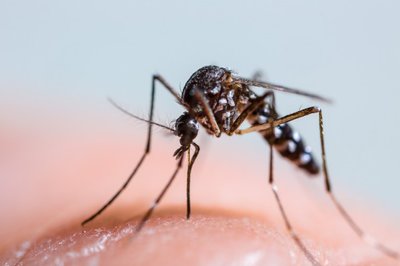
Thursday, 28 August 2014
21 des 59 nouveaux échantillons sanguins envoyés à Tahiti pour analyse contiennent des traces de chikungunya. Jusqu'à présent 269 cas ont été confirmés. Une équipe médicale de l'armée de réserve des États-Unis est arrivée au Samoa pour assurer les soin pendant le sommet mondial des petits États insulaires en développement.
(Article paru dans La Dépêche de Tahiti, du 28/08/2014, les échantillons ont été analysés à l’Institut Louis Malardé)
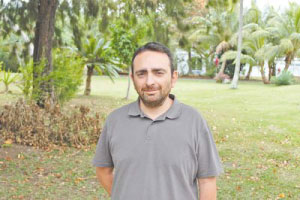
Tuesday, 26 August 2014
Le programme « Pace-net plus » vise à renforcer la coopération entre l’Europe et le Pacifique, notamment en matière d’innovation. Et promet d’aider la Nouvelle-Calédonie à mieux identifier, stimuler et exporter ses talents.
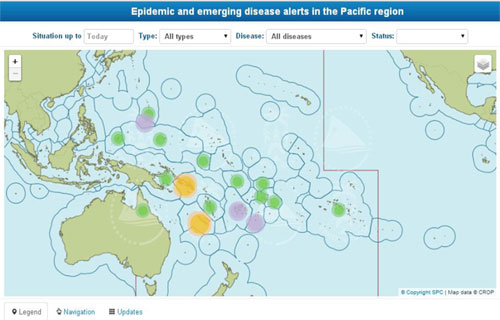
Wednesday, 20 August 2014
The Secretariat of the Pacific Community (SPC) has just launched a new web-based interactive map showing current epidemic and emerging disease alerts in the Pacific region.
Deputy Director of SPC’s Public Health Division Dr Yvan Souarès said this new website has been developed to keep health professionals better informed and ensure they are better prepared to help protect the health of Pacific and international communities from epidemic and...
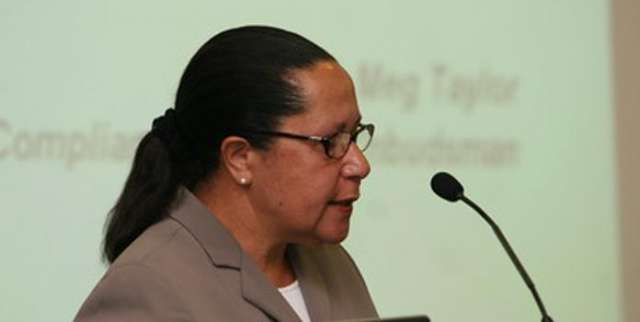
Tuesday, 5 August 2014
The Pacific Islands Forum Leaders at their Retreat in Peleliu State, Palau on 31st July announced Dame Meg Taylor, DBE, as the next Secretary General of the Pacific Islands Forum, making history as the first woman to be selected to hold the office of Secretary General.
Dame Taylor, currently serving as a senior official at the World Bank, brings over 20 years of experience working in the region and internationally, including serving as PNG's...
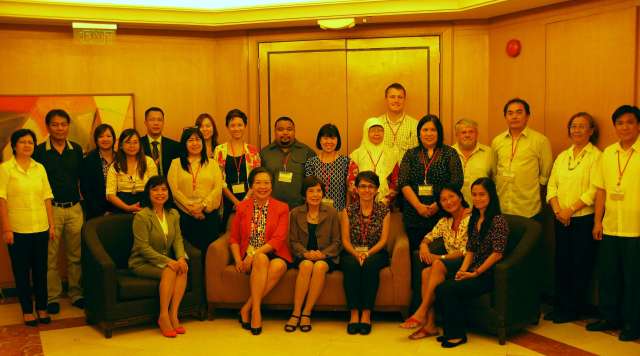
Monday, 4 August 2014
As part of the International Atomic Energy Agency’s continuous support to address issues related to harmful algal blooms (HABs) in the Asia and the Pacific region, a regional technical cooperation (TC) project which seeks to reduce the adverse impact of HABs on seafood safety has kicked off with a first Coordination and Planning Meeting in the Philippines, June 23-27. The project, entitled ‘Supporting the Use of Receptor Binding Assay (RBA) to...

Thursday, 24 July 2014
GlaxoSmithKline said on Thursday it is applying for regulatory approval for the world’s first vaccine against malaria, designed for children in Africa.
The British drugmaker said the shot, called RTS,S, is intended exclusively for use outside the European Union but will be evaluated by the European Medicines Agency (EMA) in collaboration with the World Health Organisation (WHO).
Malaria, a mosquito-borne parasitic disease, kills more than 600,...
Tuesday, 1 July 2014
The NET4SOCIETY “Report on Social Sciences and Humanities (SSH) Integration in Horizon 2020” takes a closer look at how SSH has been embedded in the first Work Programmes and in the Horizon 2020 Specific Programme.
It demonstrates that the SSH aspects mentioned in the Specific Programme and Work Programmes most often regard issues of behavior, consumption and lifestyles, (risk) management and governance, public perceptions and user preferences...

Wednesday, 25 June 2014
Through the identification of opportunities for applying knowledge and skills in science and research across a range of industries and sectors including private and public enterprises, this project will examine ways to enhance innovation, creativity and productivity in the Australian workforce and business practices that will drive Australia’s prosperity.
Productivity is critical for Australia’s prosperity, economic growth, and social wellbeing...

Thursday, 19 June 2014
Organised by Landcare Research New Zealand, this PACE-Net Plus networking and information event brought together research managers and researchers from New Zealand research institutes and universities with representatives from the Pacific and Europe.
Thursday, 19 June 2014
Anyone with a fruit tree in his garden knows all about it: by the time a fruit is mature, it has often been damaged or completely eaten by pests. For fruit farmers, preventing such losses is a continuous struggle. A new EU-funded project will now look into solutions to help them.
The DROPSA project aims to reduce and prevent damage to fruit crops by pests and pathogens. It focuses particularly on Drosophila suzukii (D.suzukii) — commonly known...
Friday, 6 June 2014
Next-generation antimalarial drugs are much needed to address resistance issues to current treatments. New strategies may work by interfering with the biology of the parasite causing the disease.
Thursday, 22 May 2014
Apart from taking into account climate change, relative sea level rise and rapid economic development as factors influencing coastal vulnerability, RISC-KIT also focuses on the social component of these issues. To this end, an Internal Synthesis Report was developed, aggregating interdisciplinary data from 11 Case Study sites.
Wednesday, 21 May 2014
A research article just published by the Secretariat of the Pacific Community (SPC) in the journal Preventing Chronic Disease reiterates the pressing need to strengthen health information in the Pacific, particularly in relation to data analysis, use and sharing.
The article focused on the findings and implications for the Pacific Islands of the Global Burden of Disease 2010 study.
The Pacific estimates in this important study show that lower...

Monday, 19 May 2014
An innovative Pacific regional meeting to be held from 9 to 13 June in Nadi, Fiji, aims to advance the region’s interests in global United Nations bodies in key areas such as gender equality and climate change.
The meeting will bring together representatives of national, regional and global women-led civil society organisations (CSOs) and networks, national women's machineries (NWMs) and high-level state representatives from New York missions...
Wednesday, 14 May 2014
Obesity puts people at risk of type-2 diabetes. But new research aims to find a combined diet-exercise prescription for keeping the optimal body weight, which may help prevent the disease.

Tuesday, 13 May 2014
The Alfred Deakin Research Institute-Sustineo Pacific Index was launched in Canberra yesterday. It ranks and assesses 27 OECD countries on aid, trade, migration, finance, security, the creation and dissemination of new technologies and the promotion of environmental sustainability. New Zealand index score ranks nearly twice that of Australia — primarily because of its aid, migration and security efforts.
Thursday, 8 May 2014
In June, Landcare Research, the New Zealand partner in PACE-Net Plus, is holding a networking and information event for research managers and researchers from New Zealand research institutes and universities, primarily to inform them of PACE-Net Plus and also the mechanics of the new EU funding framework, Horizon 2020. There will also be sessions dedicated to learning more about research in each area: New Zealand, Pacific and Australia. The...

Monday, 5 May 2014
An internationally-recognised approach to sexual health and well-being is being readied to be rolled out in the Pacific region, after it was endorsed by Pacific Directors of Health in Fiji last week. It will now be tabled for consideration at the Pacific Ministers of Health meeting in Solomon Islands in July 2014.
‘The Pacific Sexual Health and Well-being Shared Agenda provides Pacific Island countries and territories with a guiding framework...

Tuesday, 29 April 2014
Pacific Directors of Health are meeting today to consider critical actions to respond to the non-communicable disease (NCD) crisis in the Pacific. The topic will be one of a number of issues discussed at the second Pacific Directors of Health meeting in Nadi, Fiji.

Thursday, 10 April 2014
This joint OECD/World Bank publication explores how innovation policy can contribute to inclusive growth and focuses on the important role of “experimentation” in boosting innovation. Experimentation, which involves designing a portfolio of policies to solve problems step by step, monitoring and evaluating intermediate outcomes as rapidly as possible, and constant learning, feedback and adjustment, can help policy makers and entrepreneurs alike...

Monday, 7 April 2014
The Pacific is currently experiencing a growing epidemic of diseases spread by mosquitoes. The global concern for these diseases is highlighted today, World Health Day; this year’s theme is vector-borne diseases.
More than half the world’s population is at risk from diseases spread by vectors (mosquitoes, ticks or flies).
In the Pacific, 21 documented outbreaks of diseases transmitted by mosquitoes have been reported by 12 countries and...

Friday, 28 March 2014
In the wake of 13 Pacific Forum Island Countries (FICs) completing peer reviews of their country development systems over the last four years, the Pacific Islands Forum Secretariat (PIFS) is continuing to review progress made on implementing the review Recommendations.
The Forum Secretariat is also continuing to discuss with countries their Millennium Development Goals (MDGs) progress and the post 2015 development agenda.
As part of this...

Thursday, 27 March 2014
An increased supply of clean and safe water is now accessible to citizens on Peleliu State in the Republic of Palau. A newly installed solar power generation system and salt water desalination plant on Peleliu has increased water supply from 19 litres of rainwater per day to 150 litres for approximately 450 residents.
The President of the Republic of Palau, H.E. Mr. Tommy Esang Remengesau,Jr, the Secretary General of the Pacific Islands Forum...
Tuesday, 11 March 2014
Interesting articles in this month’s edition: King tides in Kiribati; VMGD launches its next 10-year Strategic Development Plan; Niue Government Endorses Meteorological Services Act; Papua New Guinea storming ahead on climate change; Global Precipitation Measurement Core Observatory Launched; Strengthened collaboration between SPREP and APAN; Mangrove crabs helping Palau adapt to climate change; Agriculture attachment to SPC brings new...

Friday, 28 February 2014
The Fiji Agricultural Journal (FAJ) has been revived. The journal includes reviews, feature articles, scientific papers, and short technical notes on Pacific island countries' sustainable agriculture, fisheries and forestry. Those interested in the Pacific islands’ agriculture sector are encouraged to contribute their experience and knowledge. This issue contains articles on topics such as tomato varieties, introduced wheat, invasive trees, soil...

Friday, 28 February 2014
Ian Boyd, Chief Scientific Adviser at the Department of Environment, Food and Rural Affairs, UK, explains why science is an essential component of policy-making. In Boyd's opinion, the scientific community does not always understand its role in this process. Science advice for policy faces two difficulties, the issue of where authoritative comment stops and political point of view starts, and the low-dimensional view of a multi-dimensional (or...

Friday, 28 February 2014
Horizon 2020 applicants from non-EU countries (or "third countries") are always free to take part in Horizon 2020 programmes – even if the call for proposals or topic text do not state this explicitly.
However, they are not always automatically entitled to funding.

Thursday, 27 February 2014
The European Union (EU) with the Pacific Islands Forum Secretariat (PIFS) have signed a financing agreement for Adapting to Climate Change and Sustainable Energy (ACSE) programme worth FJ$90.8m.
The ACSE programme will help the 15 Pacific ACP countries (Cook Islands, East-Timor, Fiji, Kiribati, , Federated States of Micronesia, Nauru, Niue, Palau, Papua New Guinea, Republic of the Marshall Islands, Samoa, Solomon Islands, Tonga, Tuvalu and...

Friday, 21 February 2014
The Secretariat of the Pacific Community (SPC) has made a contribution to Fiji’s Ministry of Health for the purchase of insecticides to carry out mosquito control interventions for the next three months.
Friday, 21 February 2014
After the success of its first InfoDay in Sydney in December 2013, PACE-NET Plus has organised a second InfoDay on Horizon 2020 – the new framework programme of the European Commission for science, technology and innovation (with a budget of €70 billion, the largest funding programme in the world) – at the Institut de Recherche pour le Développement (IRD) on the Tuesday 4th of March 2014. Presentations at this event will cover the major...
Friday, 21 February 2014
Fiji has landed a sweet deal with the European Union, the major buyer of Fiji's sugar with the assuring it will continue to buy the sweetener at a lucrative price until the year 2023.
The announcement brings to an end months of uncertainty about the future of the country's sugar exports.
Late last year, Fiji was forced to find new markets for sugar after the EU announced it would end the preferential quota system enjoyed by African Caribbean...
Friday, 14 February 2014
The Australasian Research Management Society (ARMS) Accreditation Council recently called for nominations from qualified and experienced research managers to form an initial pool of presenters for the delivery of Foundation Level Accreditation modules. These authorised module presenters have been designated ARMS Training Fellows and are recognised by the Accreditation Council as having the knowledge and skills to speak authoritatively on...

Monday, 3 February 2014
A photo book, an album, produced by INCONTACT-one world (FP7 project) aiming to higlight the value of International Cooperation in Research, and inform about the International dimension of FP7 and Horizon 2020.
Horizon 2020 is the biggest EU research and innovation programme which puts emphasis on excellent science, industrial leadership and tackling societal challenges. At the same time H2020 is a magnificent “international” programme giving...

Thursday, 23 January 2014
The first locally-acquired case of Zika virus infection that was detected in New Caledonia on Friday (17 January 2014) represents a new epidemic threat to the territory and the Pacific region, which is already affected by several epidemics of diseases transmitted by mosquitoes.
“We are concerned about the increase in the frequency and variety of epidemics of diseases transmitted by mosquitoes in the region over the years. They threaten more and...
Monday, 16 December 2013
Valuable information produced by researchers in many EU-funded projects will be shared freely as a result of a Pilot on Open Research Data in Horizon 2020. Researchers in projects participating in the pilot are asked to make the underlying data needed to validate the results presented in scientific publications and other scientific information available for use by other researchers, innovative industries and citizens. This will lead to better...

Wednesday, 11 December 2013
The European Commission has today for the first time presented calls for projects under Horizon 2020. Worth more than €15 billion over the first two years, the funding is intended to help boost Europe's knowledge-driven economy, and tackle issues that will make a difference in people's lives.
For the first time, the Commission has indicated funding priorities over two years, providing researchers and businesses with more certainty than ever...
Friday, 6 December 2013
Fiji National University has won an international bid to implement a new project called Education for Climate Change Adaptation and Mitigation (ECCAM). The University has signed two agreements with the European Union to fund the project. The head of the European Union in the Pacific, Andrew Jacobs, says it wants more students from the Pacific to participate in its educational programs.

Friday, 22 November 2013
The European Commission has launched a new call for independent experts. Experts are needed to evaluate proposals for EU funding and for other activities such as monitoring, programme evaluation and policy development.
Independent experts who registered under the Seventh Framework Programme for Research and Technological Development are invited to declare their interest in being considered for Horizon 2020 assignments and update their area of...
Wednesday, 20 November 2013
Draft Horizon 2020 work programme documents are being made public to provide potential participants with the currently expected main lines of the work programmes 2014-2015. They are working documents not yet endorsed by the Commission and their contents does not in any way prejudge the final decision of the Commission.

Friday, 8 November 2013
PACE-Net Plus is a three-year project, funded by the European Commission that will strengthen bioregional cooperation in science, technology and innovation (STI) between the Pacific region and Europe.
Approximately twenty-five representatives of Pacific countries and partner organisations took part in the project’s first workshop, from 9-11 October 2013 at IRD Noumea.
The main objectives of PACE-Net Plus are:

Friday, 8 November 2013
The launch of the photography book Our Voyage: Stories of Triumph in the Response to HIV and other STIs in the Pacific on Monday 11 November will mark a number of significant achievements as a result of support from the Pacific Islands HIV and STI Response Fund, a grant funded by the Australian and New Zealand governments and managed by the Secretariat of the Pacific Community (SPC) Public Health Division.
The book will be launched by His...
Tuesday, 5 November 2013
The South Pacific Tourism Organisation (SPTO) is pleased to confirm that the European Union signed the 10th European Development Fund (EDF10) contract between EDF Regional Authorising Officer, the Secretary General of the Pacific Islands Forum Secretariat (PIFS), and the South Pacific Tourism Organisation (SPTO) as well as with the Oceania Customs Organisation (OCO) Secretariat.
The European Union is funding the Pacific Regional Tourism...
Thursday, 31 October 2013
In his opening address at the Pacific Damage and Loss (PDaLo) Workshop, Timothy Wilcox, Sub-Regional Coordinator (Pacific) of the United Nations Office for Disaster Risk Reduction began with the quote, ‘We don’t know what we don’t know. This means that unless you actually try to find out things, you don’t know what’s out there. For example, if a river is prone to floods but you don’t know where the flooding happens then how do you know it floods...
Wednesday, 31 July 2013
The successful PACE-Net conference in Suva marked the end of a wonderful human and scientific adventure that started in 2010. The PACE-Net project has been successful in strengthening the bi-regional dialogue on science and technology between Europe and the Pacific on global and regional priorities of mutual importance; in identifying potential research partnership projects addressing these priorities; and most of all, in raising awareness of...
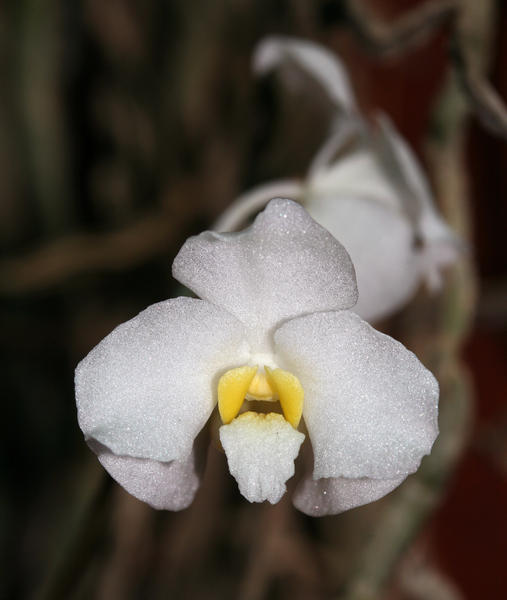
Wednesday, 23 September 2009
To connect researchers and amateurs interested in botany, six research organizations, including CIRAD, and an association, are launching the Pl@ntNet project, a collaborative network centring on a software platform dedicated to plants. Pl@ntnet has been given 3 million euros of financial support by Agropolis Foundation.
© 2013–2016 Montroix Pty Ltd
PACE-Net Plus is funded from the European Union Seventh Framework Programme (FP7/2007–2013) under grant agreement n° 609490.





